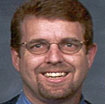Commentary on Psalm 16
If you are preaching on the Gospel text — and its doom and gloom End Times themes — then there might not be too much to back you up here in Psalm 16.
Indeed, it doesn’t matter if you are in the End Times or just plain ol’ Tough Times, Psalm 16 amounts to a confession of faith that God will bring about a good outcome no matter what.
Although Psalm 16:1 begins with a request (“Protect me, O God”), the other 10.5 verses declare supreme confidence in the fact that the Lord will not only protect but also give counsel, instruction, support, rest secure, the path of life, the fullness of joy, and “pleasures forevermore.”
Even more, there is here a somewhat counter-intuitive take on one’s dying day: “For you do not give me up to Sheol,” the psalmist claims, “or let your faithful one see the Pit.” Now that’s confidence. Or, at least, it’s wishful thinking in the face of facing one’s mortality. Or perhaps it’s just naked hope that this “faithful one” will not meet the same End as, oh, say, all other human beings that have ever lived.
Thanks to the very first sermon of the Christian movement — the sermon preached by Peter in Acts 2 — Psalm 16 has an explicit Jesus-connection. In his proclamation to those gathered around on that first Pentecost, Peter quoted the final three verses of Psalm 16, announcing that the words are about Jesus of Nazareth. “Fellow Israelites,” he explained, “I can tell you confidently that the patriarch David died and was buried, and his tomb is here to this day.” This was Peter’s way of saying that David’s words about not letting “your faithful one see the Pit” could not have been autobiographical. In other words, since David was, at the time, pushing up daisies, the words of Psalm 16 couldn’t be about him, could they now? No.
“But David was a prophet,” Peter continued, throwing King David a bone. “David knew that God had promised him on oath that he would place one of his descendants on his throne. Seeing what was to come, David spoke of the resurrection of the Messiah, that he [as opposed to David] was not abandoned to the realm of the dead, nor did his body [as opposed to David’s body] see decay” (Acts 2:29-31).
Speaking of the realm of the dead (Sheol in verse 10), consider this text an invitation to address the subject of Heaven, Hell, and where people go after they die. Or don’t. But if you do, and if you decide to focus on the biblical foundations for the concept of Hell, well, good luck to you. In the meantime, here’s some information to keep in mind: In the Hebrew Scriptures/Old Testament, the word sheol does not easily correspond with hell or, for that matter, with heaven. Instead, like Hades of Greek mythology, Sheol is the realm of all the dead. Indeed, the Septuagint translates Sheol as Hades. For some, Sheol is a place to rest in peace after death (e.g. Genesis 37:35 or Job 21:13). For others, it’s a place that swallows up the living as punishment for wickedness (e.g. Numbers 16:30-33). For the most part, Sheol’s residents are not awake or aware and, except for one verse that mentions fire (Deuteronomy 32:22), Sheol does not appear to have much in common with the Inferno of eternal suffering imagined by Dante.
In the Gospels, there are two Greek words — hades and gehenna — that have been translated as “hell.’ (A third word, tartarus, is employed once, in 2 Peter 2:4.) Only rarely (as in Luke 16:19-31) do Jesus’s descriptions of hades connote a place where a person endures prolonged suffering. And nowhere does Jesus use the word hades or gehenna in conjunction with a place where a person consciously suffers for eternity. Instead, while using the term gehenna, Jesus describes an unquenchable fire where the wicked are utterly consumed (as in Matthew 10:28). What the hell?!
In 2011, Rob Bell, an American Evangelical pastor, caused a stir by questioning the existence of a physical Hell. The brouhaha over Bell’s ideas helped inspire a TIME cover story that asked, “What If There’s No Hell?” (TIME, April 25, 2011). A January 31, 2000, U.S. News and World Report cover story also dealt with the subject of Hell and its growing absence in Christian sermons.
Department of Bible Trivia (that can nevertheless be turned into a preaching point).
Psalm 16 begins by announcing that it’s “A Miktam of David.” There’s not much scholarly agreement regarding what miktam means. In fact, what scholars do agree about is that the meaning of miktam is uncertain. It appears only six times in the Hebrew scriptures: here at the start of Psalm 16, as well as at the start of Psalms 56-60. If each of the psalms that are introduced by the phrase “A Miktam of David” had a common meter or pattern or theme, then one could come up with a decent guess about the meaning of miktam.
For now, miktam’s meaning remains hidden. Still, the word is part of Holy Scripture. Surely, there’s something you can say about how not everything that’s in the Bible has a clear, definitive meaning, can’t you?

November 18, 2012